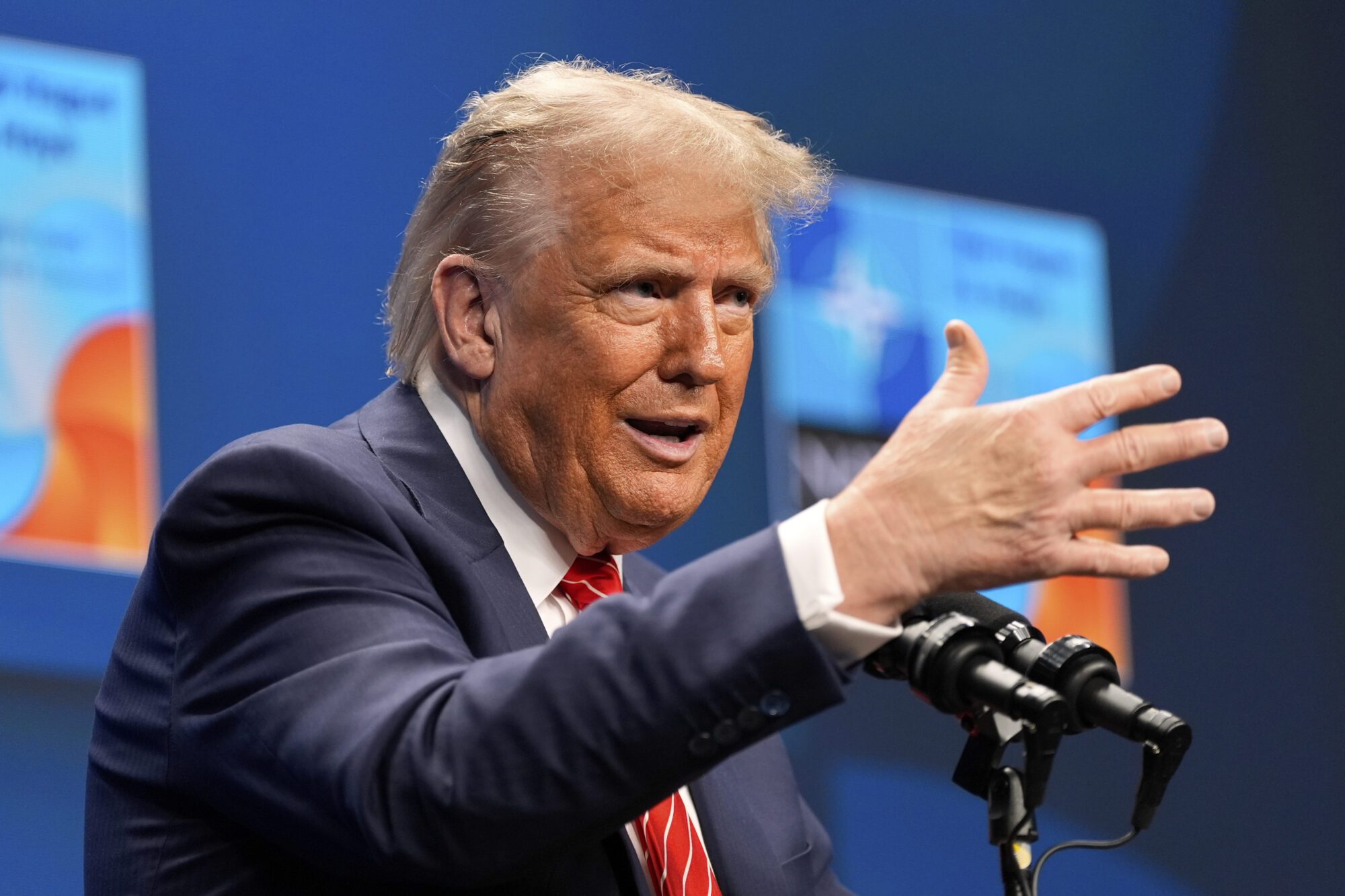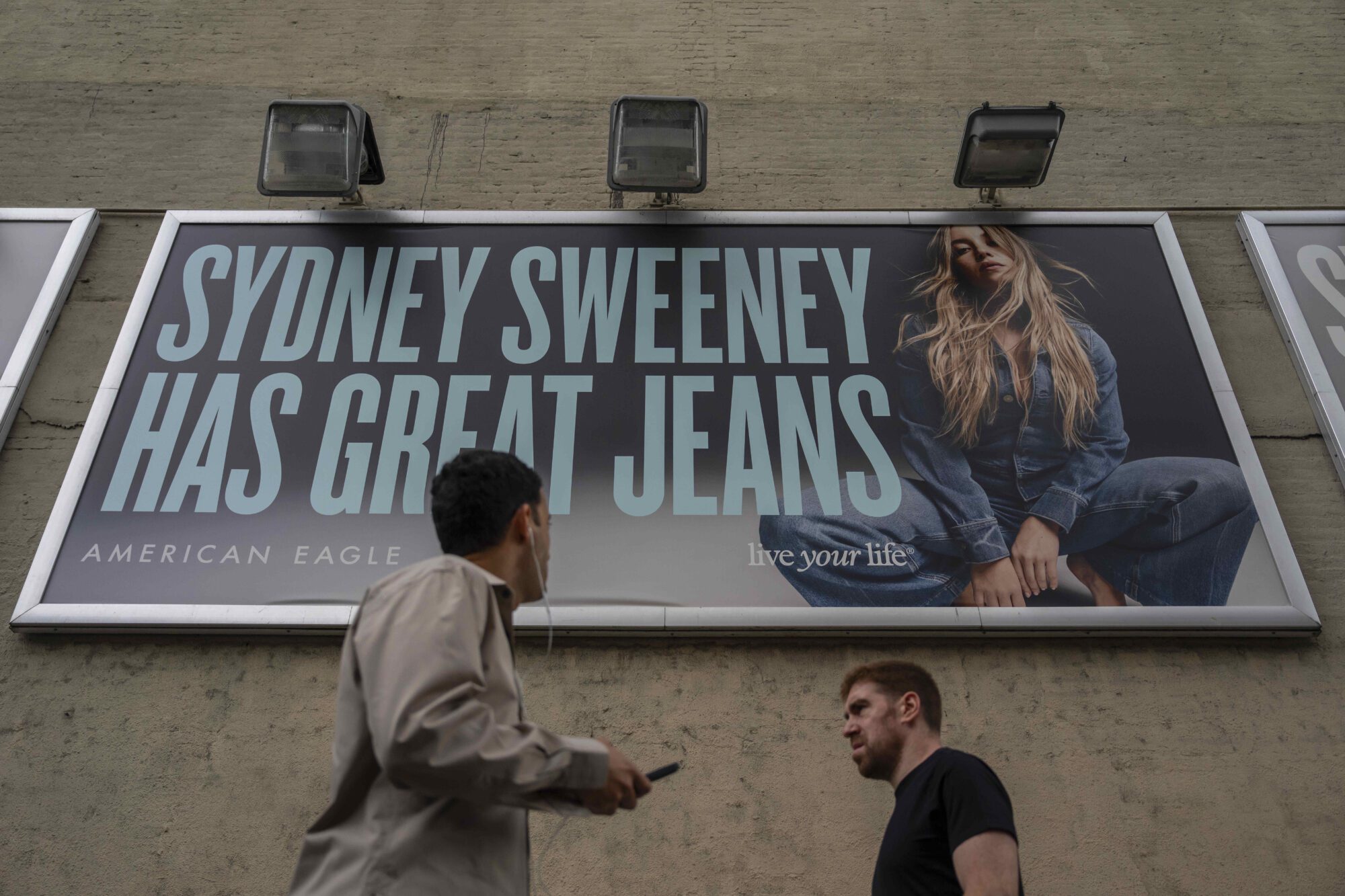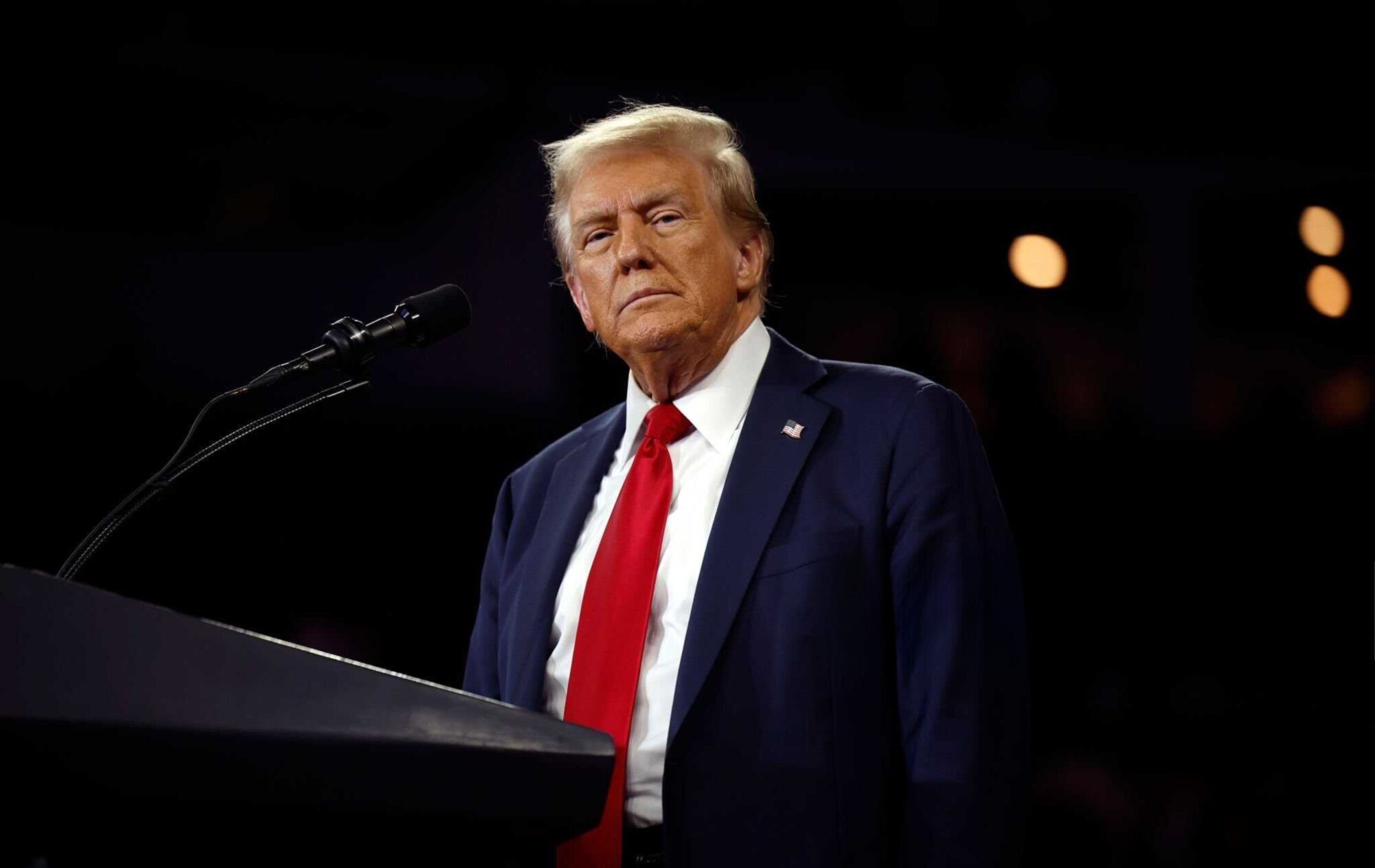
President Donald Trump gestures as he speaks during a media conference at the end of the NATO summit in The Hague, Netherlands, Wednesday, June 25, 2025. (AP Photo/Alex Brandon)
- President Donald Trump has called on state lawmakers to pass “universal school choice,” while the Mississippi Democratic Party has rallied in opposition to the policy this week.
When President Donald Trump took office, he said “universal school choice” was a “top priority” of his administration. The President has said he wants “all children to have access to quality education” and “a child’s zip code in America should never determine their future.”
Trump has described school choice as a “moral issue.” “The path to the American dream has always been education,” said Trump, “school choice is the civil rights issue of our time.”
For many Americans, and virtually all Mississippi students, where they attend school is dictated entirely by where they live — with only their local public school as an option.
While “school choice” takes many forms, the concept preferred by the White House creates what are known as “Education Savings Accounts.” Deposited into these accounts is a portion of the taxpayer funds already allotted to each student. The student’s family can then decide how to use those funds on qualified education expenses. The end result is that families have more options over where and how their children are educated.
School choice increasingly a “Republican versus Democrat” fight
Governor Tate Reeves and House Speaker Jason White, both Republicans, have indicated they will carry the school choice banner in 2026. In a social media post on Thursday, Reeves even hinted at the potential for a special session to take up the issue.
In a series of posts and statements throughout the week, the Mississippi Democratic Party rallied supporters against school choice. Meanwhile, Mississippi Republican Party Chairman Mike Hurst, in a series of X posts, defended the state Party’s platform in favor of school choice.
The partisan dichotomy on the issue of education freedom is the clearest yet and mimics the experience in other deep red states, including all of Mississippi’s surrounding states. Arkansas, Louisiana, Alabama, Tennessee and Florida have all passed universal school choice plans in recent years under Republican leadership.
As red states have fallen in line with President Trump’s call for choice, he’s been quick to heap praise on the leaders who pass the policy. This manifested this past week with endorsement letters issued to state lawmakers in Texas who voted for their recently passed school choice plan.
Political Consequences for the Squishy?
Trump’s endorsements in state legislative races raise the specter that the opposite could also be true — that Republicans who stand against him could face political consequence. Texas might serve as the cautionary tale. In 2024, 6 of the 8 Republican incumbents targeted by Governor Greg Abbott for their opposition to past school choice proposals lost their seats. (In total, Abbott won 11 of the 15 incumbent challenges he ran against fellow Republicans).
Meanwhile, no lawmaker who has voted to support a universal school choice proposal across the country has lost a seat because of their support. This likely is a byproduct of the fact that while opposition to school choice is organized and very vocal, it’s also quite thin. In recent polling done by EdChoice in Mississippi over 70 percent of Mississippi parents support allowing their taxpayer dollars to follow their student to the school of their choosing.
Opposition to Trump on school choice, could expose the right flank of Republican legislators willing to buck him to stand with their Democratic colleagues. Interestingly, Governor Reeves, who is term limited in 2027, has continued to raise money for a PAC — potentially signaling his plan to remain active in Mississippi races after his tenure has concluded.
Support for school choice could become a litmus test for 2027 statewide hopefuls, as well. Already Secretary of State Michael Watson, who is rumored to be eyeing a run for Lt. Governor, and State Auditor Shad White, who is among a throng of potential gubernatorial candidates, have defended the concept of school choice. Watson’s nod to the policy may be particularly relevant to Mississippi senators on the fence as they begin to think of what a post-Delbert Hosemann Senate will look like.
Trump’s Reasons
Shortly after taking office, the Trump White House issued an Executive Order supporting the expansion of “Education Freedom.” The EO contained perhaps the clearest articulation of why the President supports the policy:
“Parents want and deserve the best education for their children. But too many children do not thrive in their assigned, government-run K-12 school. According to this year’s National Assessment of Educational Progress (NAEP), 70 percent of 8th graders were below proficient in reading, and 72 percent were below proficient in math. Moreover, geographically based school assignments exacerbate the cost of housing in districts with preferred schools, straining the finances of millions of American families sacrificing for their children’s futures.
When our public education system fails such a large segment of society, it hinders our national competitiveness and devastates families and communities. For this reason, more than a dozen States have enacted universal K-12 scholarship programs, allowing families — rather than the government — to choose the best educational setting for their children. These States have highlighted the most promising avenue for education reform: educational choice for families and competition for residentially assigned, government-run public schools. The growing body of rigorous research demonstrates that well-designed education-freedom programs improve student achievement and cause nearby public schools to improve their performance.
It is the policy of my Administration to support parents in choosing and directing the upbringing and education of their children.”
In addition to efforts underway within the Trump administration, Congress’ recently passed “One Big Beautiful Bill” contained federal policy encouraging states to adopt school choice proposals, including tax credits for private donations to K-12 scholarship funds.











